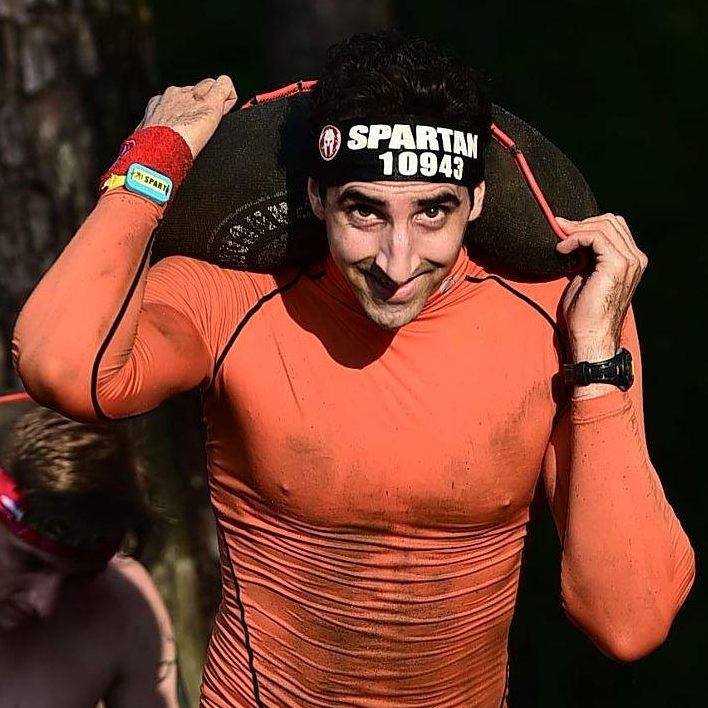 Name
Name
Alan Lewis
Age
29
Lives
Houston, TX
Occupation
Civil Engineer
Favorite OCR series
OCR World Championships
Favorite obstacle
Platinum Rig
Least favorite obstacle
Hercules Hoist
Ideal race distance
5-7 miles
2017 goals
— Lower my 2-mile PR to 11:15 and 5k PR to 18:30
— Earn a Spartan World Championships coin
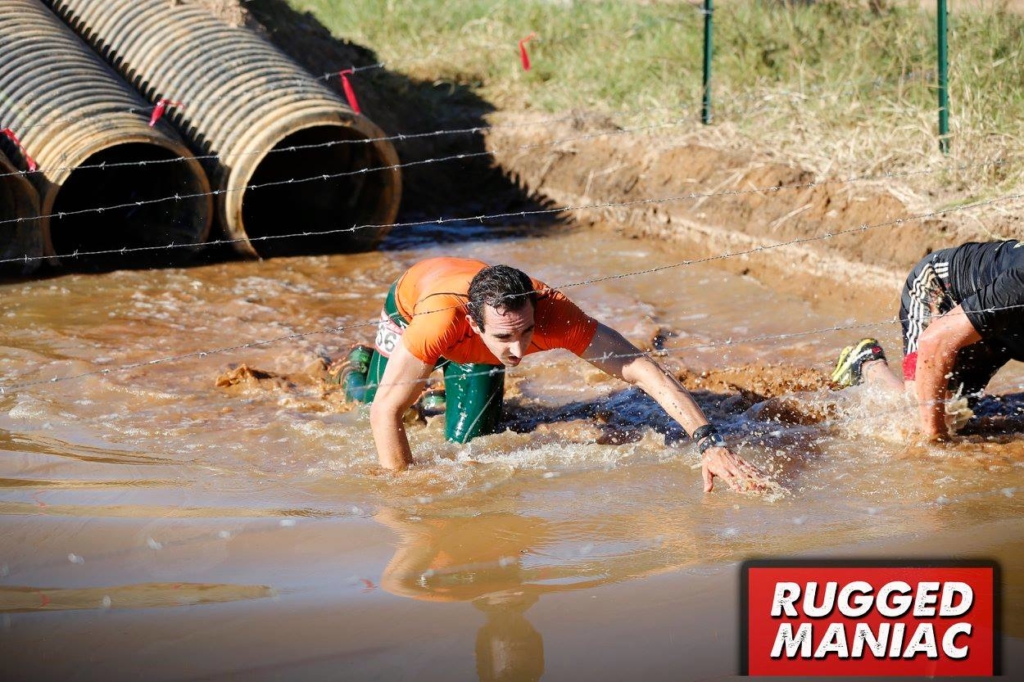 Brief bio
Brief bio
Something most people wouldn’t be able to guess just by looking at me is that I’m fluent in Spanish and identify as fully American AND fully Mexican. As a kid, I did a lot of traveling with family and spent a lot of time in the outdoors. Whereas my hometown is Newbury Park, California, I still consider Mexico City to be my second home because I would spend anywhere from 1-2 months visiting relatives and family friends who lived there. We’d always be back in time to spend several days camping in Big Sur, California, with relatives from my dad’s side of the family.
While growing up, I was mostly a geeky kid with big dreams and high aspirations. I hit the books hard in high school and challenged myself to full IB and AP, which many of my peers thought was insane. Somehow, I made time for cross country starting my junior year. My times were never all that great, but got me hooked on trail running. Newbury Park sits at the base of the Boney Mountain State Wilderness, which has plenty to offer. While studying Civil & Environmental Engineering at UCLA, I worked in the residence halls as as a Resident Assistant and spent the little free time that work and homework allowed to run the hills of Bel-Air. What eventually brought me to Texas was a fellowship to pursue my M.S. in Water Management & Hydrological Science at Texas A&M. Eventually, I landed an internship and was offered a full-time position at the corporate office in Houston. I did my first obstacle course race in March 2015 and I’ve been hooked ever since.
Social media
Instagram: @aquaman_ocr
Twitter: @AlanakaAquaman
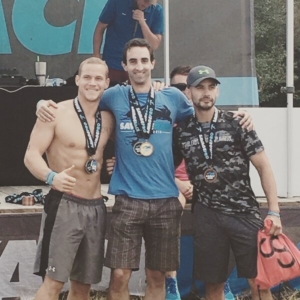 Why do you compete in OCR?
Why do you compete in OCR?
OCR is great physical and mental challenge and every race feels like an adventure. There’s an element of surprise where you can’t predict with absolute certainty how everything will play out. You have to be mentally in the present moment while forecasting your next move.
What is your favorite part about the sport?
One of the best parts about competing in OCR is the community. It builds friendships that span long distances and stay fresh as if time doesn’t pass. Moreover, the people are salt of the earth and everyone has a remarkable story to tell. If you were to take an abstract idea like inspiration and make it reality, it might resemble an OCR event.
Have you overcome any significant setbacks, such as injury, personal trauma, etc.?
Ten years ago, my running career skidded to a halt after I developed PFPS (patelo-femoral pain syndrome) in my right knee. For an entire year, I couldn’t run more than a half mile without feeling some sort of pain under my kneecap. It recovered to a point, but never fully went away until I participated in Richard Diaz’s running clinic in early December 2015. Nearly a year later, I’m not only pain-free but faster than at any point in my life before.
Tell me about a time when you experienced a lack of motivation. What caused this and what did you do about it?
A couple of years ago, I went through a rough patch that lasted for a good year and a half, maybe longer. A couple of car accidents, financial struggles, career transitions, and other things put me in a dark place. I’m naturally positive and upbeat, but the emotional seesaw made it a struggle to find the motivation to push myself athletically. Not having clear athletic goals beyond vanity, let alone good knowledge of how to train, made it a struggle. I can really sympathize with people who have a hard time finding motivation. It’s really hard when you simply don’t know what to do. Getting into OCR helped change that. It helped me recover by giving me purpose, taught me how to recover, boosted my self-confidence, made body image the least of my goals, and offered an experience through which to share that inspiration with others.
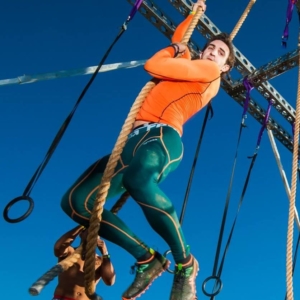 You tend to wear bright colors for your race attire. What’s the backstory for your look?
You tend to wear bright colors for your race attire. What’s the backstory for your look?
When I started in OCR, I noticed two neat things early on. First, whether you’re a competitive athlete or a weekend warrior, it brings out the kid in you. Second, it gives you a great platform to create a persona. Back in high school, my friend Brendan assigned each person in our group of friends a superhero from the Justice League. He, of course, was Superman. There was Flash, Green Lantern, Batman, and I was Aquaman. We thought it was fitting since I focused on hydrology and water resources in college and eventually my career. Little could we imagine that it would make for a great alter ego.
What went through your head the first time you crossed the finish line?
You’d probably remember better than anyone that time I nearly took your arm off with a high-five, Jack.
Have you had any embarrassing moments from a race?
Failing on the Platinum Rigs at BattleFrog Austin, Dallas, and Los Angeles was pretty bad. Come to think of it, I couldn’t make it through the first lap at these races. The Los Angeles event especially bad because my family was there.
What has been the highlight of your racing career so far?
There was a moment halfway through the course at the OCR World Championships 15k when someone said to me “Congrats, number seven!” I ended up placing 8th in the competitive wave for my age group, 25-29, but hearing that just blew my mind and gave me a surge of confidence. It was the biggest affirmation of what you’d been telling me all along, to “Trust the training.” Staying faithful to the Yancy Camp workouts has really paid off.
Would you like to see more race series continue this trend of offering multiple distances at their championship race?
Yes, definitely! Many athletes like to cross-train, but some are more naturally gifted than others at particular distances. What I’d especially like to see more of are team competitions with obstacles that require cooperation. The final obstacle of the event at OCRWC gave me a lot of respect for everyone who struggled on that slip wall during the NBC “Spartan: Ultimate Team Challenge” TV show. But as with anything in OCR, something you enjoy leaves you craving for more.
Describe your OCR training routine. What areas do you feel are your strengths vs. weaknesses?
My typical routine will be maybe 4-6 workouts weekly. Each might involve a 10-15 minute warmup, followed by a series of interval sets. The intervals will involve a balance of mostly aerobic effort on a treadmill or run for several minutes, a switch to tempo for a minute or two, quickly followed by sets involving a variety different activities like pullups, burpees, hangs, weighted squats, carries, or lunges. The hard workouts might run anywhere from 60-90 minutes. Yancy likes to mix it up a lot, which keeps things interesting. The key is to focus on form and build up incrementally. Rome wasn’t built in a day.
Strengths: strength, hill climbing
Weaknesses: speed, grip endurance
Tell me a little more about what you do for a living. Where do you see yourself 10 years from now?
Currently, I work as a civil engineer in Houston doing some pretty interesting work in stormwater management. Most of my day to day involves doing drainage studies involving 2D drainage models. It’s all very visual and hands-on stuff, which is particularly gratifying now that I’ve gotten the hang of it. Over time, I’d like to transition towards project management, though I’m also seriously considering going back to school for a doctorate. What happens ten years from now might depend on what happens over the coming year, which is all at once scary and exciting. For now, all I can say is that ten years from now, I see myself continuing to rock at OCR in my age group. Hopefully, I’ll be back in LA or in Mexico City, or better yet back and forth getting to do projects in both countries.
I’m amazed at how many highly-educated people there are in the OCR community, including yourself. Do you feel that this is an accurate statement?
That’s a very accurate assessment. Most of the people who compete at the elite level went to college, and a decent number of them have graduate degrees. But moreover, I’d say that regardless of education, the people in the OCR community are all highly intelligent, which is something I love about the sport and the community.
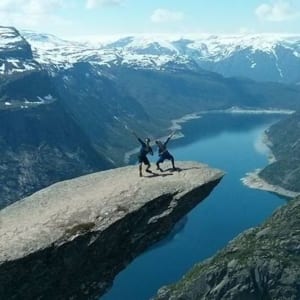 Outside of OCR, what is your biggest passion?
Outside of OCR, what is your biggest passion?
My biggest passion outside of OCR is reading science and traveling. My passion for science couples with my love for nature. It amazes me sometimes that I can be so generally positive in spite of what I know about our human impact on the environment. I think it’s difficult for most people to comprehend because they have a hard time looking at the big picture. For me, that just comes naturally. It’s easier to be mindful when you know how things are linked. For instance, when I see a piece of plastic in the parking lot at the grocery store, my urge is to pick it up and put it in a trash can. Why? Because the next time that rains, it’ll go straight into the storm drain, ends up in a stream somewhere, or eventually the ocean and the food chain. Everything comes back to us and we all have a stake in it. During my college studies, I got a lot of ideas about how I could apply my skillsets and enthusiasm to inspire others to take better care of our world and the environment. Someday when I have more time, I would love to spend weeks at a time leading rural development projects in Mexico and possibly elsewhere throughout Latin America. It would also be cool to organize groups abroad that get people into OCR. Jay Flores and The OCR Project have inspired me a lot in this regard.
Were you able to convince your family or friends undergo a healthy lifestyle makeover after you started to get serious about OCR?
A few friends and cousins have asked me about what I do for training. My friend Brendan Konrath got hooked on OCR after we ran in the competitive heat at Spartan Military Sprint at Ft. Bragg. We’ve talked about doing Asheville next year.
What advice do you have for people who make the “I’ll get to it next week” excuse instead of actually accomplishing a goal?
Seize the moment. Get to it right now while it’s on your mind. Don’t put off for tomorrow what you can do today.
Do you follow any of the top elite racers?
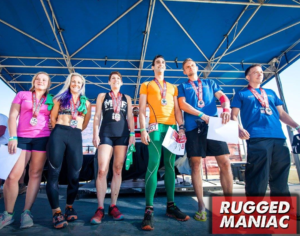 Honestly, I don’t pick favorites. It’s fun to watch and see how everyone in the standings. That’s not to say that there aren’t people that I admire, but I like to look out for my role models. Yancy and Michael Mark are great examples of men I’d like to be in 10 years.
Honestly, I don’t pick favorites. It’s fun to watch and see how everyone in the standings. That’s not to say that there aren’t people that I admire, but I like to look out for my role models. Yancy and Michael Mark are great examples of men I’d like to be in 10 years.
Give me a fact about yourself that would impress most people?
Two years ago, in early 2014, I suffered a reasonably catastrophic collarbone fracture when I slipped on ice while in Plano, TX. This is especially ironic because the word “plano” in Spanish literally translated to “flat” in English. It wasn’t until a couple of days later when I had an X-ray that I found out the bone looked like a trainwreck. The really “fun” part was having to drive my manual transmission pickup truck with balding tires all the way back to College Station. It was probably one of the most terrifying moments of my life. I’ll never forget the look on my orthopedic doctor’s face when he and his team saw the X-ray. They said it ranked up in the 90th percentile of ugly breaks they had seen.
What is your opinion of OCR TV coverage?
The more air time OCR gets, the better. Growing the sport’s recognition is hugely important because it offers more than just fun in the mud. There are a lot of people who could seriously benefit.
Do you think OCR companies do a good job advertising their events? If not, what would you improve?
Some companies have done a great job of branding and advertising, like Spartan and Tough Mudder. Others maybe not so much. We all saw what happened when BattleFrog went under and Atlas Race before them. The secret is in steady, organic growth. Savage Race, Warrior Dash, and Rugged Maniac have done an excellent job with this. I think Conquer the Gauntlet is also making good progress.
Are you pursuing any achievement next year, like a Spartan Trifecta or running one race from each of the major series?
It’s about time to give those lonely Spartan Sprint medals some company. I’d certainly like to do a Spartan Trifecta next year. Asheville and Breckenridge would be exciting destination races.
What’s the furthest you’ve traveled to attend a race (or are planning to travel next year)?
This would have to the OCR World Championships in Ontario, Canada. It was such a great experience and I hope to do it all again in 2017.
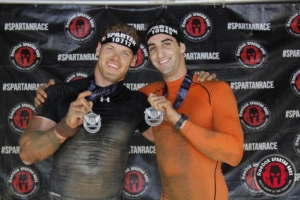 How many medals do you own and what do you do with them after the race? Which one are you most proud of?
How many medals do you own and what do you do with them after the race? Which one are you most proud of?
Since I started OCR in 2015, I think I’ve run about 20 races. My podium finishes have added maybe three additional medals. They’re all hanging on nails around my room, but that has more to do with my current living situation. Eventually, I’d like to hang them all together. A few of my friends have showed me some cool setups.
Pretend you’re a race director for a day. Describe the course you would design (including pre- and post-race festivals, if you’d like).
The race would be 5-8 miles, over mountainous terrain, with uphill carries, and increasing obstacle density. The obstacles would involve a mixture of ones with quick transitions and others that challenge your technique. Spreading out first several obstacles in the early race is key to avoiding bottlenecks. That allows the faster people to spread out. It would be great if there could be more swimming obstacles. The way that Savage Race set things up at Cat Spring this year for Houston event was great. However, the one thing I’d change would be have the water slide at the very end. Rugged Maniac in Austin nailed it with this.
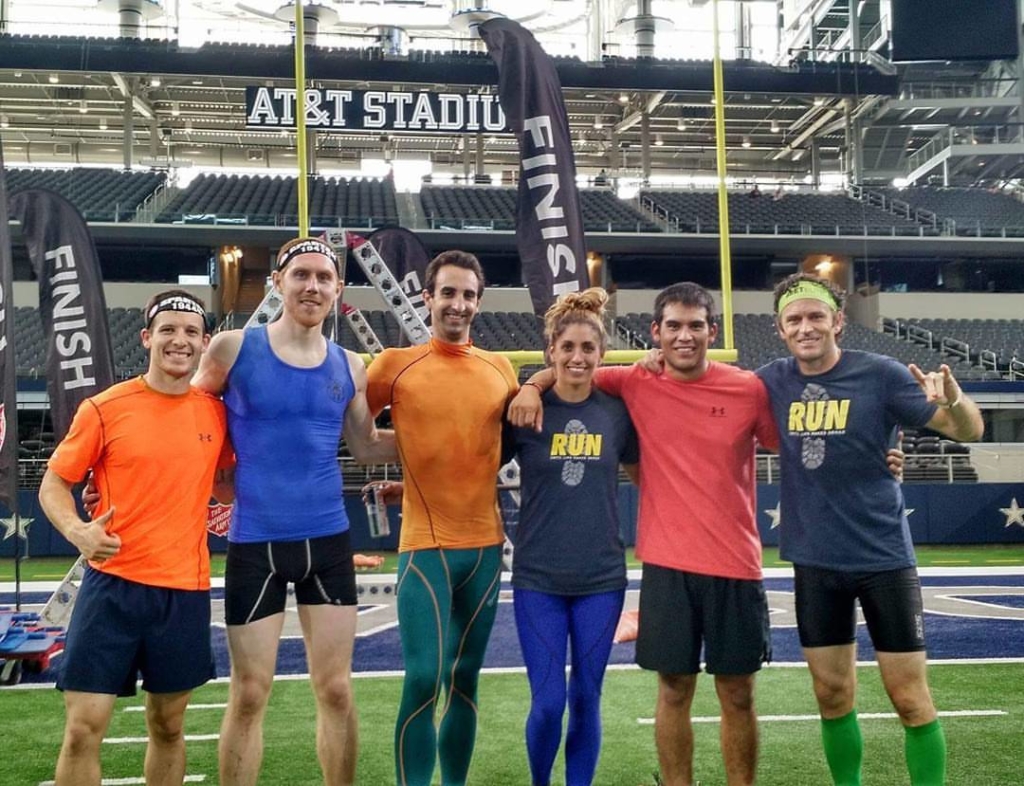

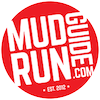
Great article Jack, learned a lot! Congratulations Alan for an amazing year of races. We admire you both!
Laura and John